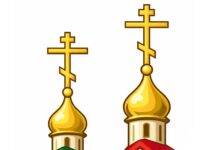North Africa has long been the site of a intense geopolitical rivalry between two countries: Algeria and Morocco. At first glance, the standoff is centered around the disputed territory of Western Sahara, but in reality it goes much deeper and is less trivial: alliances, economics, and regional leadership.
Since 2020, the situation has changed dramatically in Morocco’s favour, isolating Algeria as a result.
The Nature of the Conflict
Western Sahara is a disputed territory in southwestern Morocco, populated mainly by the Berber-Arab Saharawi people.
Following the withdrawal of Spain in 1975, Morocco annexed most of the region, while the Polisario Front, supported by Algeria, fought for the territory’s independence. Algeria has provided political, military, and humanitarian support to the Polisario Front since the beginning of the conflict, providing them with shelter and training facilities on its territory.
In contrast, Morocco views Western Sahara as an integral part of its territory and offers autonomy within the Moroccan kingdom.
Turning Point: U.S. and Israel Recognise Morocco’s Sovereignty
A key turning point occurred in December 2020, when the Trump administration recognised Morocco’s sovereignty over Western Sahara in exchange for normalising relations between Morocco and Israel under the Abraham Accords. This was a diplomatic breakthrough for Rabat and a major challenge for Algeria.
Later, other countries began to recognise Morocco’s position, including the UAE and Bahrain. These states not only supported the Moroccan initiative for Western Sahara autonomy, but began to actively invest in the kingdom’s economy including the disputed territories.
Geopolitical Alliances: Morocco, Israel, and the UAE
Together with Israel and the Gulf states, Morocco is forming a new axis of influence in North Africa.
Israel has provided Rabat with high-tech military equipment, including drones and air defense systems, causing serious concern for Algiers.
Defense cooperation between Morocco and Israel, confirmed by agreements in 2021-2023, has increased tensions. The UAE, in turn, has become an important economic partner: Emirati companies are investing in infrastructure projects in the Western Sahara, including ports and energy facilities.
This alliance, concerning Israeli tech advancements, Emirati logistics, and Morocco’s regional ambitions, aligns with a counter to Turkish and Iranian influence and most importantly: Algeria.
Algeria’s Reaction: Isolation and the Search for Alternatives
In response, Algeria severed relations with Morocco in August 2021.
Algiers accused its neighbour of "unfriendly actions": including espionage and political interference. Simultaneously, Algiers sought deeper relations with Tehran and Moscow via military cooperation and diplomatic ties.
However, international support for the Polisario Front is weakening.
Many countries, including Germany and Spain, have declared their support for the Moroccan autonomy plan as a “realistic and sustainable” solution to the conflict. This is real blow to Algerian diplomacy as Madrid historically balanced relations between both Algiers and Rabat.
In addition, economic stagnation, high inflation, and a lack of foreign investment only exacerbate the country’s isolation. Unlike Morocco, Algeria has found itself outside the major international infrastructure and energy projects in the region.
Economics
Algeria has long used its gas resources as leverage, especially on bilateral relations with Europe. Yet the 2022 energy crisis and Europe’s shift to alternative suppliers, including Israel, Qatar, and the United States, have diminished Algeria’s importance as a reliable partner.
Morocco, meanwhile, is becoming a green energy hub, actively developing solar and wind power plants in Western Sahara with the support of the EU and UAE.
In the future, this could provide it not only with energy independence, but also with export potential.
The Future Conflict
The standoff between Algeria and Morocco could remain frozen for years to come, but the growing gap in diplomatic capabilities and international support could push one of the parties to take more proactive measures.
Algeria, feeling diplomatic pressure, could increase its support for the Polisario Front, which would lead to new armed clashes. Morocco, feeling the support of Israel, the UAE, U.S., and Europe may inetgrate the Western Sahara further via economic measures.
Amid international changes and the transformation of global alliances, Algeria has found itself in a situation of increasing diplomatic isolation, while Morocco is strengthening its position through a pragmatic foreign policy and strategic alliances.
The conflict over Western Sahara today is not just a dispute over territory, but an indicator of a broader geopolitical game in which Morocco is on the winning side.
Read the Latest Articles on DET!
Confessions and Invisible Tragedies: Why Cheating is More Popular than Death
A New Wave of Bioethics: The Frontiers of Genetic Engineering
Malta Shuts the Door on ‘Golden Passports’: Contribution, Not Direct Investment





